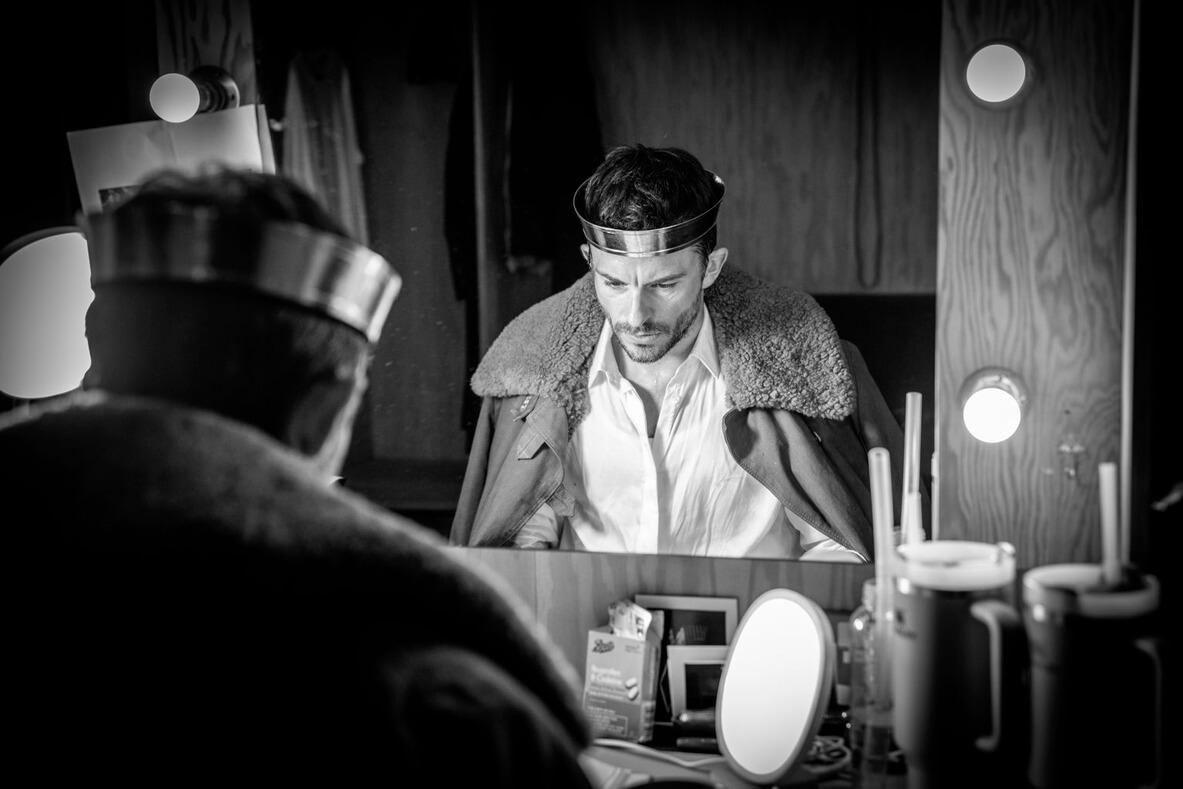Stuart was new to the source material whilst I approached reviewing the adaptation as someone with a thorough knowledge of the trilogy of books the play is based on, which I've read twice.
I echo his enthusiasm for the epic production and indeed the view of the many many critics who've enthused about it. The project is indeed a magnificent undertaking in which Mike Poulton has condensed Robert Harris' trilogy of novels into a seven hour, two part production to be enjoyed over a couple of evenings or one long day.
Swiftly and clearly directed by Greg Doran it contains several magnificent performances and some extraordinary ensemble work as a large company of Royal Shakespeare Company actors bring several decades of Roman politics to teeming and memorable life.
It's the story of the politician, lawyer, orator and philosopher, Cicero who clambers to high-office despite a humble background. He then spends the rest of his life clinging on to various semblances of power in defence of Rome's version of a democratic republic. All this in the face of a series of potential and actual tyrants, notably the cunning Julius Caesar and his calculating son. Parallels with contemporary politics are thread throughout with the power-hungry Pompei be-wigged to resemble Donald Trump and several arch references to power grabs, the stupidity of the electorate, and sovereignty.
Richard McCabe gives an extraordinarily complex performance as Cicero, embodying all the contradictions of this fascinating man. By turns charismatic, cantancerus, grandstanding and cunning he ages from preening politico to a jowly, opertunist old reprobate before our eyes. Peter De Jersey's Caesar is also a study of how ambition and swagger can morph into a seething bundle of paranoia, as he becomes a dangerously irrational, snarling bully.
Any adaptation of any novel is bound to leave out someone's favourite bits and on the whole I have nothing but admiration for Poulten who condenses the narrative, primarily from books 1 and 2, into a clear and cohesive whole.
I've heard some people grumble that it's seven hours of middle aged privileged people shouting and waving swords. But that's fine by me when what they say lays bare the fascinating mechanics of keeping a vast empire politically on track.
Even Robert Harris fans will admit that women barely feature in his work with any consequence and so it proves here but women had very little say in Roman governance so they're secondary characters in Imperium; wife, daughter, temptress & mother roles.
I'd have liked Anthony Ward's elegant series of barely changing platforms to have decayed slightly to reflect the crumbling fortunes of Ancient Rome's democracy. But what I most regret is how reduced the character of Tiro, Cicero's servant, has been.
One of the central themes of the book, and its emotional heart is the life-long relationship between Slave and Master and how Tiro finally wins his freedom but elects to stay with his master. He also has a back story and a long term romance. Here that's all dismissed in a few sentences and the character is reduced to chipping in linking narration and throwing in a few sarky comments. The other perplexing thing about Joseph Kloska as Tiro is that he retains the appearance and mannerism of a young man through out, whilst the rest of the cast express how their characters age and decay.
But these are just the gripes of a Robert Harris "fan boy". If you've never read the books you won't be aware that their emotional heart is missing.
An essential theatrical marathon for history buffs, politicos, and all intelligent play-goers.

 You may well have read
You may well have read 



 Anger over the policing of women’s bodies, alongside topical issues such as slut-shaming, social media bullying and what it means to be a feminist, are all conversations that are (rightfully) at the forefront of contemporary discussion.
Anger over the policing of women’s bodies, alongside topical issues such as slut-shaming, social media bullying and what it means to be a feminist, are all conversations that are (rightfully) at the forefront of contemporary discussion.